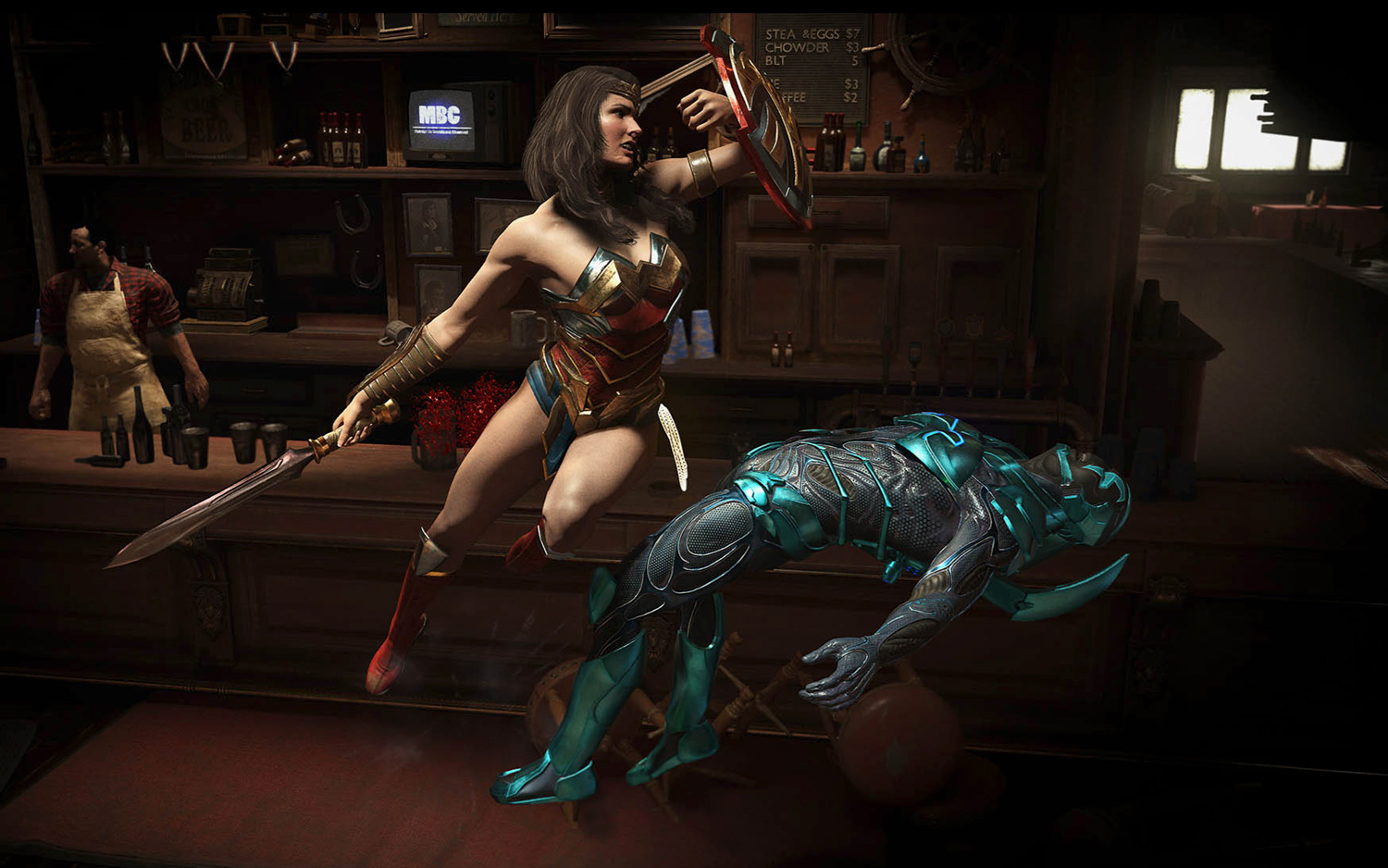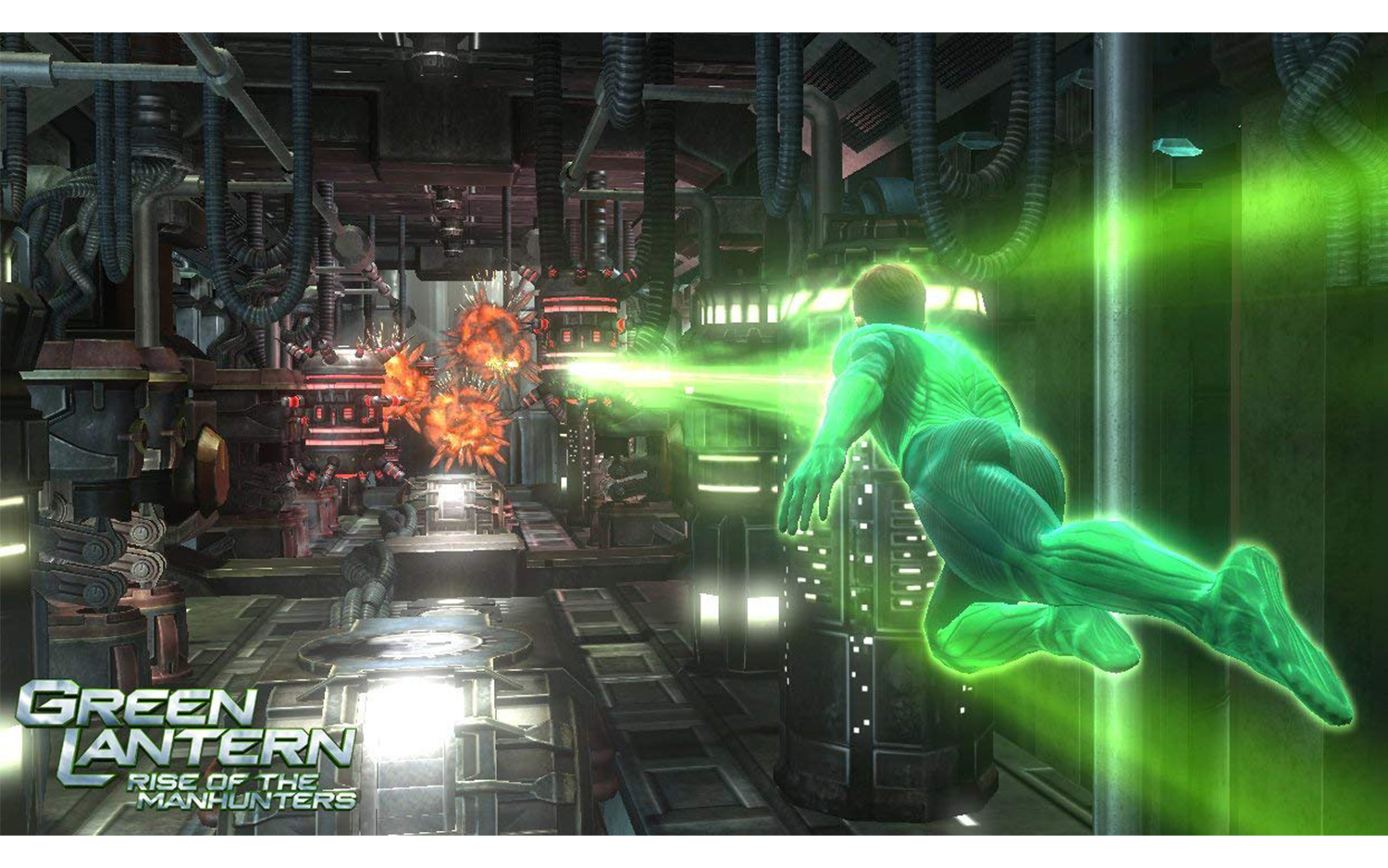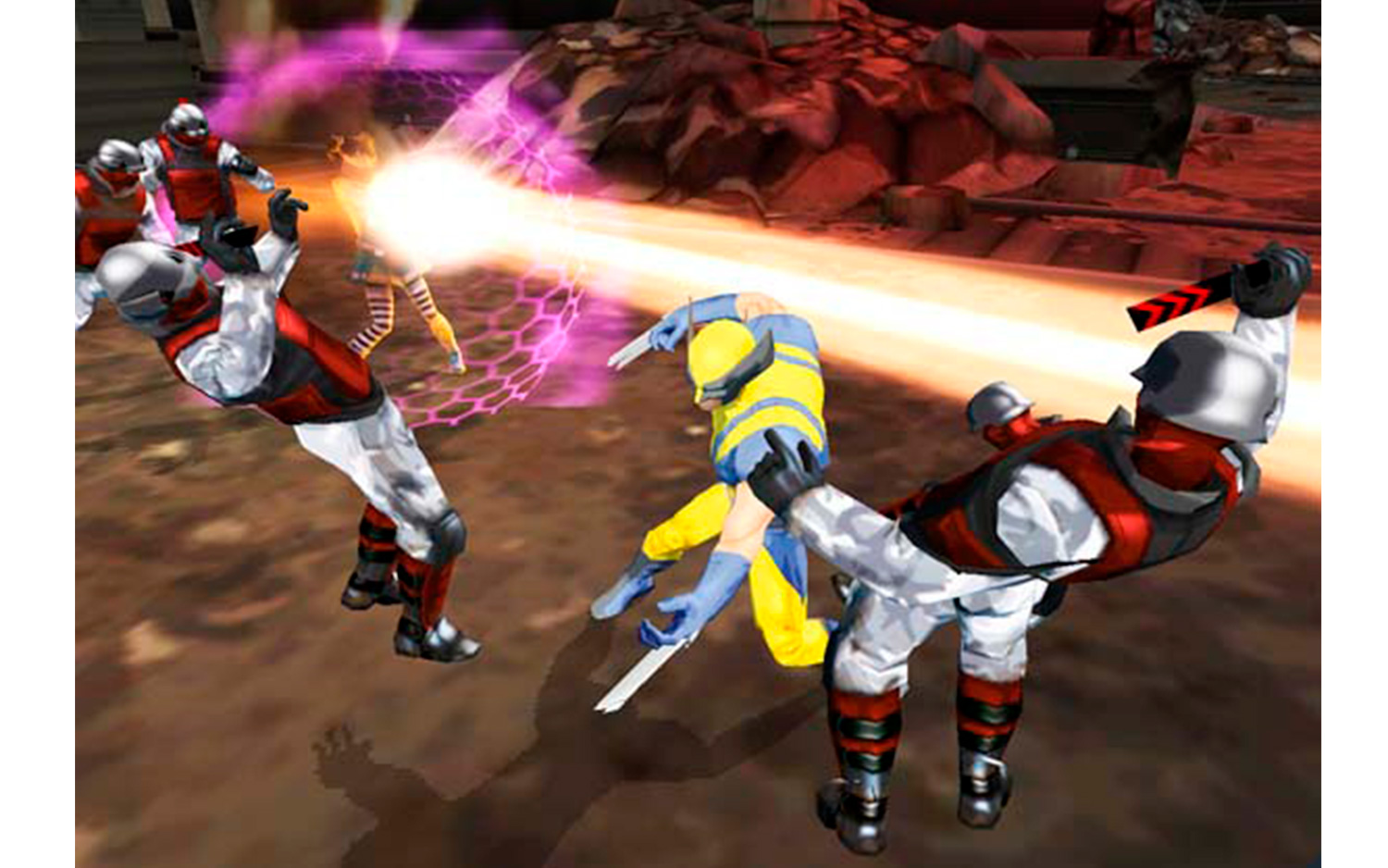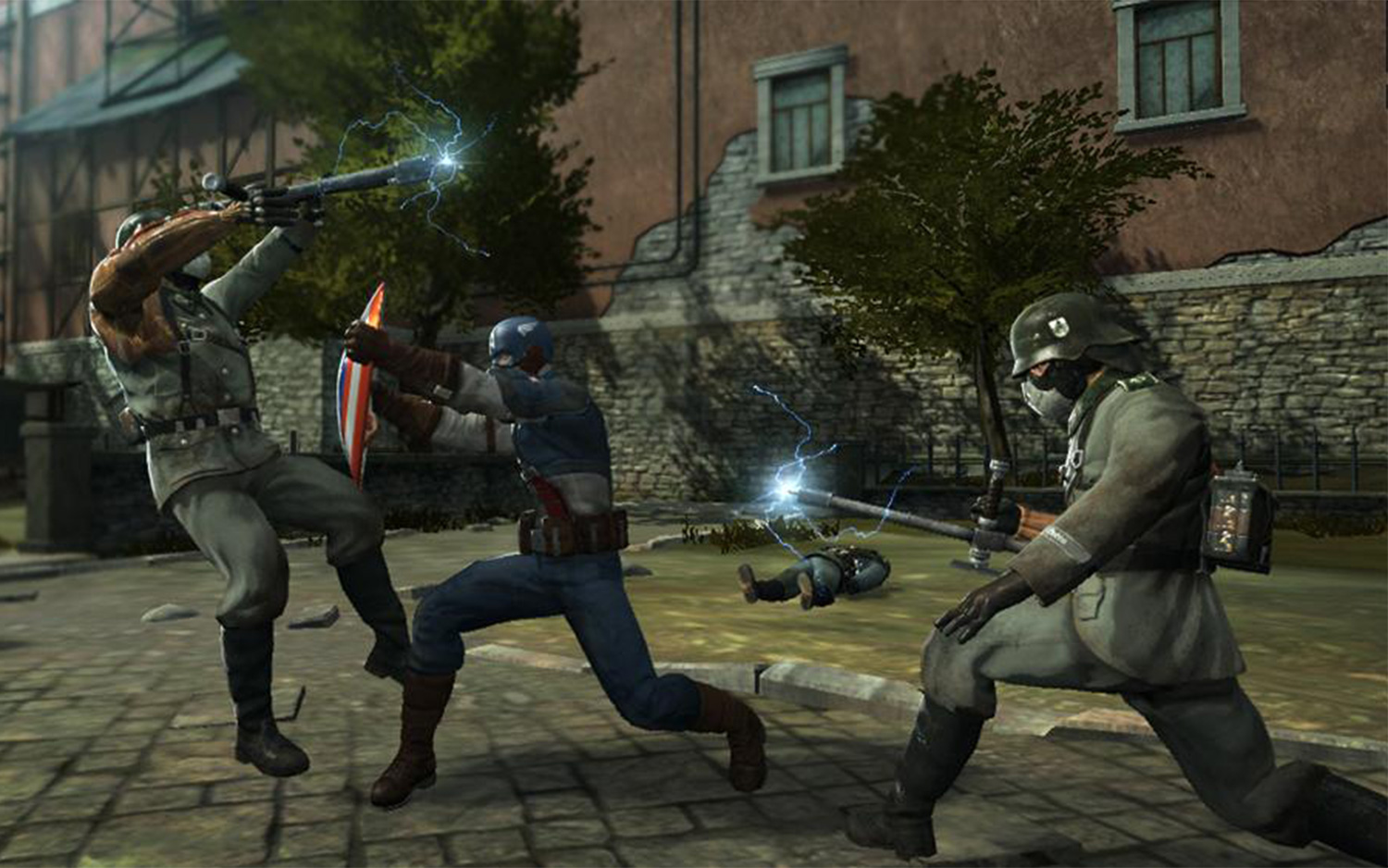Why Most Superhero Games Suck
Superhero games aren't inherently bad, but I've got an idea to explain why they haven't panned out as they should have — and why they can, in the future.
Superhero games should, in theory, be some of the best adventures in the medium. If video games are all about playing as individuals with extraordinary abilities, then someone like Superman should be at the heart of gaming's premier offerings. Yet, odd as it may be, the games industry hasn't generally been nice to superheroes.

Though our favorite characters occasionally catch breaks in titles like Batman's Arkham quadrilogy, the Marvel: Ultimate Alliance series and the sporadically stellar, ever-growing catalogue of Spider-Man titles, these kinds of games are the exception, not the rule.
Superhero video games are something of an anomaly in this regard. Unique circumstances have come together to make this variety of game a particular challenge in the development circuit — a challenge we're going to investigate. Superhero games aren't inherently bad, but I've got an idea to explain why they haven't panned out as they should have — and why they can, in the future.
Batman v Superman: Dawn of Context
While bland shooters like The Division and Destiny dominate the market without the need for revolutionary gameplay, authentic personalities or iconic characters, beloved figures like Superman, Iron Man, Thor and Wonder Woman all sit on the sidelines. These heroes rarely get a spotlight that does them justice in anything besides ensemble fighting games.
Though these fighting games are great (Injustice 2 and Marvel vs. Capcom for DC and Marvel, respectively), these titles can't afford to capitalize on their heroes' unique strengths. After all, the devs can't have Iron Man fighting Hawkeye at full force — therefore, they neuter Iron Man until both he and his opponent are just hollow skin-swaps of each other.

Perhaps this would change if Iron Man had his own game to let loose in — but wait, he did. Two of them. And they weren't good. Just like Superman's two big solo games were bad. And like Green Lantern's lone AAA outing was bad. And Aquaman's. Almost all of them have been bad, frankly. Why is that, though? After all, no one goes into game development saying, "Gee, how can we butcher this project and put out something we're ashamed of?" Games have credits for a reason.
Let's start with the obvious cause: corporate interference.
Tie-In Troubles
Why is the situation like this? There are a few reasons: artistic limitations, tight development cycles and budgets that stymie creative potential.
Imagine someone hires you to re-create the "Mona Lisa" — but it has to be their exact interpretation of it, and you have to do it with a $5 paint kit from Big Lots within the next 3 minutes. That's roughly what developers go through when they're contracted to develop a licensed tie-in game for Iron Man or Green Lantern.
I got in touch with industry analyst Lewis Ward and asked for his take.
"First," he said, "the IP [intellectual property] owner is rarely the game developer. That means they farm it out to a work-for-hire studio and may impose tight restrictions on the type of game the studio can make, or the hired gun may not be well-versed in the superhero lexicon and so miss the mark from a fan's perspective.
"Second, if the game is tied to another entertainment property, such as a movie launch, that imposes a hard deadline that may lead to corner-cutting that hurts the final gameplay experience."
All those pressures mean that a tie-in is usually a doomed prospect before a single line of code is written. The game is not free to explore its own artistic or technological boundaries, but is instead bound to rules imposed by a cold, money-minded leadership.
"If there's an IP owner, a developer and publisher involved, and they all want to maximize profits, that can wind up squeezing the development budget more than [would happen with] an original IP game that gets self-published on Steam, for example," Ward said.
MORE: Xbox One Games: Our Staff Favorites
One of the most brazen examples of a superhero movie tie-in gone wrong is Transformers: Rise of the Dark Spark, the weird prequel-sequel to Transformers: Fall of Cybertron. RotDS took the universe established in War for Cybertron and Fall of Cybertron, two critically acclaimed games by High Moon Studios, and made half a game around that. The other half of the same game was a direct movie tie-in to Transformers: Age of Extinction.
In other words, it was the Frankenstein's monster of video games. Neither half worked, and both felt cheap and rushed. Staple features of the series such as competitive multiplayer were omitted entirely. This subpar tie-in tarnished the legacy of High Moon's stand-alone series.
With Great Brand Recognition Comes Great Responsibility
Another issue with superhero games comes in the expectations associated with these titles. When a company says it's making an X-Men game, people expect a damn good one. If the product is simply functional, that mediocre verdict then gets blown out of proportion due to the potential the license had.

I'm talking about X-Men: Destiny, in case you were wondering. Due to (purported) poor leadership and some other unfortunate circumstances, this game came out of the development oven like a burnt Little Caesars pizza: still edible, but not all that tasty.
Yet we, as a society, remember it as an appalling failure, simply because of the potential the game had. Silicon Knights had no tie-in obligations to worry about (that we know of). It had Activision as a publisher! Money, time and imagination were on the developer's side, and it squandered the opportunity, putting out a product that shipped solely on name recognition. You can't cover up a shoddy product with a beloved superhero. Looking at you, too, Green Lantern: Rise of the Manhunters.
Nothing Worse Than Average
There is one more reason for the failures of superhero games: mediocrity. If there's anything worse than an outright bomb or a lazy success, it's a game that almost works. These are the games that, had they been just a bit better, could've helped the case that superhero games are actually fine most of the time. Games on this list include Captain America: Super Soldier and Deadpool.

Super Soldier was a solid game, and if you want more time with Steve Rogers, it's not a bad idea to grab a used copy of this title off eBay. Its averageness stemmed from the fact that it wasn't anything but a linear, smaller version of the Batman Arkham games, covered in a 1940s paint job. It was a fun clone but not another victory for the genre.
2013's Deadpool got close as well, but failed to snag a home run for superheroes. The game, while loaded with personality and great humor, was little more than a bland 8-hour hack-'n'-slash (which somehow cost a rumored $100 million dollars to develop).
MORE: Most Anticipated Games
The issue with these games is that no one remembers titles that can be summed up with "nice try." Therefore, it's left to the great and awful games to determine the public's perception of the genre. And as we know, for every Arkham City, there's an Aquaman: Battle for Atlantis, Superman 64, Catwoman, Iron Man or Thor: God of Thunder waiting to take the superhero game reputation down a peg.
If at First You Don't Succeed
With all that said, license holders have started to realize that making slipshod AAA superhero games isn't beneficial for anyone. It's why we're seeing the rise of games like the Arkham series or, as we'll hopefully soon see with Marvel, Spider-Man on PS4 and The Avengers Project.
While stale sequels and derivative games will always be an industry-wide issue, problems inherent to the superhero sector seem to be slowly but surely disappearing. Rushed, sloppy tie-ins are no longer a profitable endeavor, and it's becoming more apparent that quality sells. Maybe, just maybe, there's hope for the genre after all.
Sign up to get the BEST of Tom's Guide direct to your inbox.
Get instant access to breaking news, the hottest reviews, great deals and helpful tips.
Robert Carnevale is a News Editor at Windows Central. In the past, his work has appeared on other sites, such as Tom's Guide, Tom's Hardware, Laptop Mag, MSN, Wired, Looper, and more. Also an author, he has written a novel, Cold War 2395. He loves Sci-Fi and Sonic The Hedgehog.
